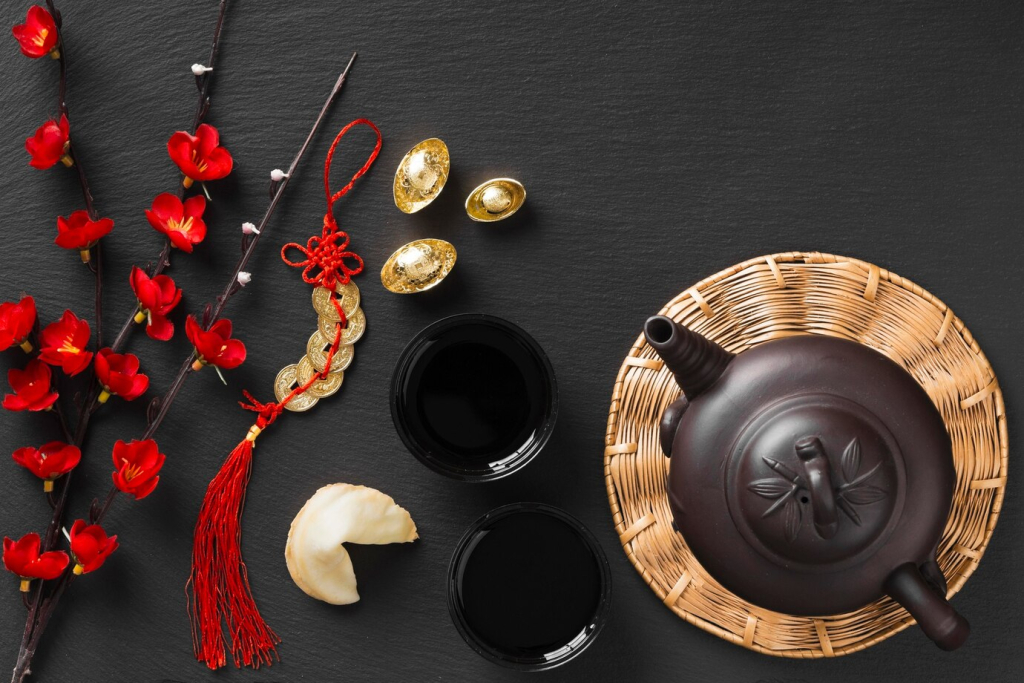Feng Shui 101: Ways to Incorporate Luck to Your Home
Many Filipino families follow Feng Shui principles in their homes for a number of reasons. Feng shui is said to attract wealth and good fortune, good health, long life, good energy, and happiness for the family living in the home, among many things.

What is Feng Shui?
Feng Shui traces its roots to ancient Chinese beliefs. The term “Feng Shui” can be broken down into two Chinese words: “feng” and “shui,” which mean wind and water, respectively.
The name itself is a symbol of the concept, literally translating to “wind-water”. As the term suggests, incorporating the natural elements plays an integral role in the practice.
In Feng Shui, elements (wood, fire, earth, metal, and water) are brought together in the home’s design and decor to create a harmonious balance and life flow, or qi/chi. When the qi is flowing generously, it is thought to bring good fortune, prosperity, and abundance to the house.
In the Philippines, Feng Shui practice is common in the construction of new structures, like a new house or new buildings, and even in the renovation and revitalization of a room or space.
Vital Feng Shui Practices in Filipino Homes
In Feng Shui, several earth elements are brought together and considered when planning spaces. Whether you’re planning Feng Shui for a new house or looking to balance energies and improve the qi of each room in your home and surroundings.
These Feng Shui practices are deeply rooted in Filipino homes, reflecting a blend of cultural beliefs and traditional wisdom to create a positive and harmony-filled environment.
This article shares some Feng Shui tips to improve the qi, peace, and good energy in your space and life:
Main Door Placement
In Feng Shui, doors are thought to be the passageways of qi. Among all the doors in your house, however, front doors take precedence and importance.
Front doors attract positive energies, money and qi, and, as such, front doors should be strong and well-positioned. Ideally, front doors should be facing south. In this case, choose strong, bold colors like red.
However, not every house can get to choose or completely re-do its layout. In cases where a house has a north-facing front door, one of the tips to continue attracting good fortune and positive qi is to paint the door a dark shade, like navy blue or black.
Many homes have other doors (considered secondary doors). While these also attract and encourage the flow of energy, the front door is the crucial “mouth” of the qi where it primarily passes to enter the house.
Natural Light and Air Flow
Allowing natural light and fresh air to enter the house is a common Feng Shui principle. It is believed that a well-lit and well-ventilated space promotes good health, positive energy, and prosperity.
Natural light is a powerful force that encourages qi to flow freely throughout your home’s space. It also creates a more harmonious and peaceful atmosphere. In addition, the positive energy from natural light promotes productivity and naturally enhances the mood of anyone who lives in the home.
There are several ways to harness lights from nature. The simplest way to do this is through having big, lofty windows.
Big windows allow sunlight to stream into the different parts of the home and even let in fresh air. At night, windows also attract light from the moon.
If your house needs even more lighting to enhance it, you can add brightness by having wall lighting and even statement lighting.
Water Features
Incorporating water elements, such as a small fountain or a bowl of water, is believed to attract wealth and prosperity. The sound of flowing water is always soothing and is associated with positive energy and abundance.
Bedroom Feng Shui
There are plenty of Feng Shui tips focused on the bedroom. The bedroom is an important room in any house because it is where you rest and present for yourself.
One of the most popular tips is the placement of the bed. The bed should not be placed directly opposite the bedroom door since this is where the energy enters and exits the room.
It’s also considered bad luck to position the bed this way since it mimics how the dead are brought into and out of open doors as they pass.
Decluttering Spaces
Removing clutter from the home is a widely practiced Feng Shui tip. Clutter is thought to obstruct the flow of positive energy and may lead to an imbalance in the environment, affecting various aspects of life.
This means that your furniture must be positioned strategically to have space enough for the qi to attract good energy and wealth into your house.
Keep your stuff in their proper organized space. Your work area, in particular, should be free of clutter to allow more clarity and peace in your mind.
In fact, keeping your house clutter-free is also one of the best safety tips you could get. It reduces the risk of accidents and injuries, such as slips and falls.
Boiling Water and Rice Ritual
One of the traditional Feng Shui tips for a new house is boiling water. At the entrance of your new home, boil water to cleanse the space of negative energies and invite positive forces.
This ritual is believed to promote harmony and balance in the new home.
Another Feng Shui belief is that a new home should have bowl of rice. In Chinese tradition, it’s customary for friends and loved ones to leave a bowl of white rice at a new home as a gesture of good luck and well-wishes.
Feng Shui Tips as Guides
What you have to realize is that Feng Shui tips are simply tips and shouldn’t be taken as an end-all guide. Moreover, there is no wrong or right way to practice Feng Shui either.
These Feng Shui practices are thought to attract wealth, prosperity, and good fortune. However, it’s ultimately up to you and your decisions what you can achieve in the world.
At Camella, we want to support your life goals and aspirations. Whether you’re moving into a new home in Camella or revitalizing your space, Camella is with you every step of the way.

Celebrate Life’s Milestones in Camella!
Make unforgettable memories in a Camella home.
Our communities are designed to elevate your living experience.

